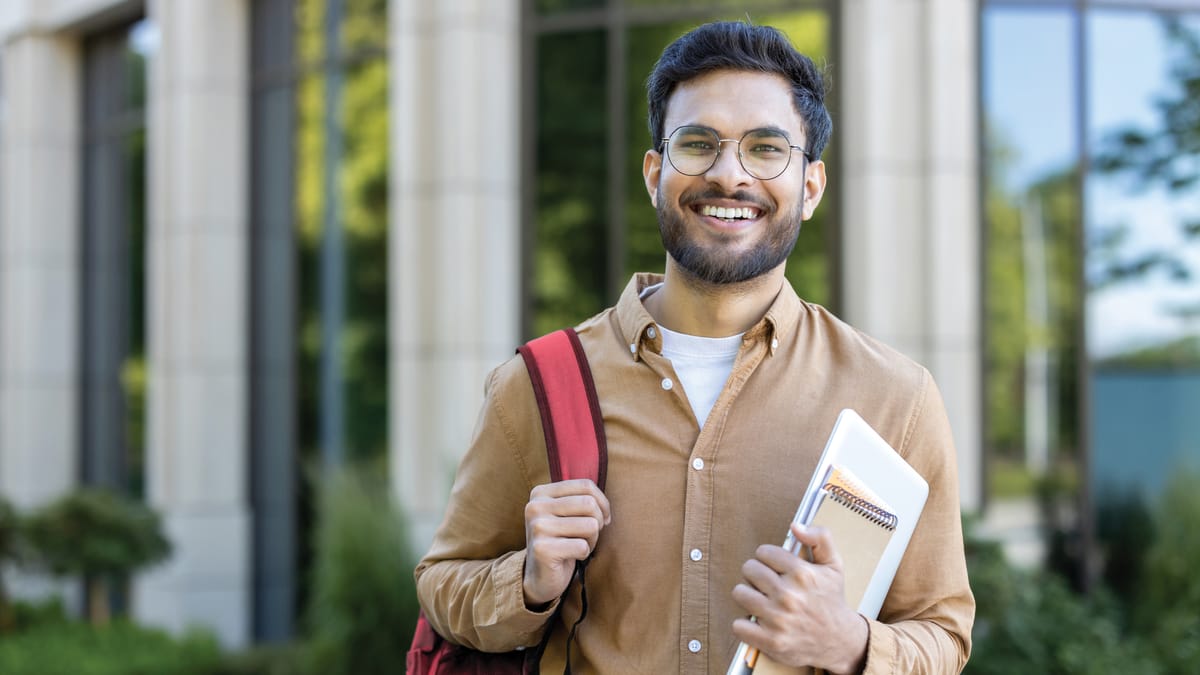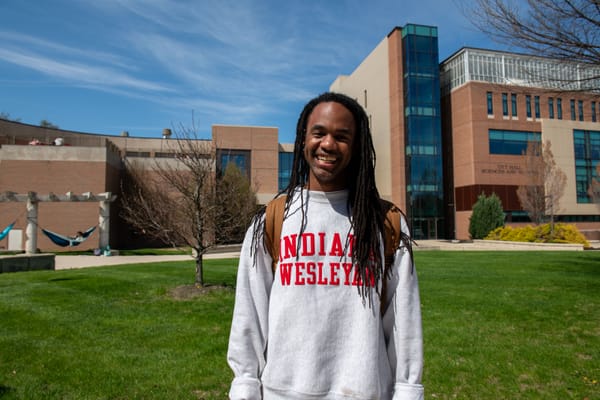F1 Visas Demystified: Your Guide to Studying in the USA

The United States is one of the most sought-after destinations for foreign students, celebrated for its world-class education, innovative research opportunities, and vibrant cultural diversity. Every year, thousands of students take a leap toward their dreams, choosing to study in the US. However, pursuing higher education in the US comes with one crucial step—navigating the F1 visa process.
Whether you’re an aspiring scholar or a candidate eager to explore new horizons, understanding what an F1 visa is and how it functions will set you on a smooth path toward achieving your academic goals. This blog unpacks the essentials of the F1 visa, why it matters, and how it supports your ambition to study in the US.
What Is an F1 Visa?
The F1 visa is a non-immigrant visa that allows international students to pursue full-time academic studies at an academic institution, including accredited colleges, universities, or other educational establishments in the United States. Specifically designed for individuals enrolled in degree-seeking programs, the F1 visa ensures that international students can legally enter, reside in, and gain an enriching academic experience in America.
This visa is one of the most common types issued to students globally. Whether you’re aiming for an undergraduate degree, a specialized master’s program, or even a PhD, the F1 visa is your gateway to an exceptional education.
Key Highlights of the F1 Visa
- Coverage: Applicable to full-time academic students attending accredited institutions.
- Non-Immigrant Status: Designed for education, not permanent residence. F1 visa holders must enroll in a full-time degree program, such as an Associate degree program, to maintain their residency status.
- Opportunities: Enables participation in internships, use of campus facilities, and engagement with academic communities.
Why Is an F1 Visa Important?
Earning an F1 visa is an essential milestone for international students preparing to study in the US. It provides you with the legal framework and protection necessary to focus entirely on your education without any disruptions. Maintaining your student status is crucial to ensure you remain in compliance with visa regulations throughout your academic program.
Benefits of the F1 Visa
- Legal Authorization to Study: The F1 visa grants you the legal right to attend accredited institutions across the United States.
- Access to Support Services: It ensures your eligibility for student-specific resources, including academic advisors, mental health services, and international student communities.
- Opportunities for Practical Training: Through programs like Curricular Practical Training (CPT) and Optional Practical Training (OPT), the F1 visa allows you to gain valuable work experience in your field.
- Part-Time Work Opportunities: Students with an F1 visa can work up to 20 hours per week on-campus during the academic semester, helping them earn practical experience and manage expenses.
Any off-campus training or employment must be authorized by a designated school official, ensuring compliance with SEVIS and USCIS regulations.
By meeting visa requirements, international students also enjoy peace of mind, knowing they’re aligned with US immigration laws.
Admission Requirements for International Students
To embark on your academic journey in the US as an international student, you must meet specific admission requirements. These criteria ensure that you are well-prepared for the academic challenges ahead and can support yourself financially during your studies. Not all F1 visa applicants will be accepted, if you pay attention to the process your chances will be considerably increased.
How Does an F1 Visa Help International Students Legally Study in the US?
Beyond providing legal access to education, the F1 visa opens several doors for international students to immerse themselves in the complete U.S. academic experience.
Students must interact with U.S. Citizenship and Immigration Services (USCIS) for extensions and changes of status to maintain their student status and ensure compliance with immigration laws in the United States.
Legal Rights and Benefits for F1 Visa Holders: Optional Practical Training
Eligibility to Study at Reputable Institutions: Only students accepted by SEVP (Student and Exchange Visitor Program)-approved schools can receive an F1 visa. This ensures you’re accessing top-quality education.
Practical Training Programs: CPT and OPT allow F1 visa holders to gain hands-on experience in their area of study, bridging the gap between academics and industry.
Recognition as a Legal Resident: Throughout the duration of your academic program, you are considered a legal resident under your F1 visa.
Opportunities to Build Networks: F1 visa holders have access to vibrant academic ecosystems and student bodies where they can grow their personal and professional networks.
This framework enables a seamless educational experience, paving the way for academic and professional success. Maintaining your visa status is crucial to ensure eligibility for various benefits like practical training and re-entry into the U.S.
How to Apply for an F1 Student Visa
Visa applicants seeking to apply for an F1 visa might find the process overwhelming at first, but it becomes straightforward once you break it down step by step. Here’s a simplified outline of the process:
1. Admission to a SEVP-Approved School
Begin by securing an admission offer from an accredited U.S. institution. Once accepted, the school will issue you a Form I-20, enabling you to proceed with the F1 visa application.
2. Pay the SEVIS Fee
Submit your SEVIS I-901 fee payment to enroll in the Student and Exchange Visitor Information System.
3. Complete the DS-160 Form
Fill out the online non-immigrant visa application (Form DS-160). Ensure all provided information is accurate and consistent with your documentation. Upon approval of your visa, you may be required to pay a visa issuance fee. Do not make final travel plans until your visa is approved, as issuance is not guaranteed.
4. Schedule Your Visa Interview
Book an appointment with the U.S. Embassy or Consulate in your country. Note that wait times may vary, so plan accordingly.
5. Prepare for the Interview
Gather all relevant documents, such as your I-20 form, passport, DS-160 confirmation, SEVIS fee receipt, proof of funds, and admission letter. Practice clear and concise answers detailing your academic goals and plans after graduation.
6. Attend the Interview
During the interview, you’ll be evaluated to ensure your intentions align with F1 visa requirements.
By following these steps diligently and preparing effectively, you’ll increase your chances of a successful application.
F1 Visa Interview
The F1 visa interview is a pivotal step in your application process. This interview allows the consular officer to assess your eligibility and intentions for studying in the U.S. Proper preparation can significantly enhance your chances of success.
Maintaining Valid F1 Status
Once you have your F1 visa, maintaining your status is crucial to ensure a smooth and uninterrupted academic experience. Compliance with visa regulations is essential to avoid any legal issues.
Common Questions About the F1 Visa
What are the eligibility requirements for an F1 visa?
To qualify, you must:
- Have a valid admission offer from an SEVP-approved institution.
- Demonstrate sufficient financial resources to cover tuition and living expenses.
- Show intent to return to your home country after completing your studies.
Can I work with an F1 visa?
Yes, F1 visa holders can work up to 20 hours per week on-campus during semesters and up to 40 hours during breaks. Off-campus work is permitted only under CPT, OPT, or specific economic hardship conditions.
How long can I stay in the U.S. after graduation?
After completing your program, F1 visa holders can remain in the U.S. for 60 days unless they:
- Apply for OPT for work experience.
- Transfer to another academic program.
What are the experiences and challenges faced by students studying abroad?
Students studying abroad often experience a mix of positive and challenging emotions. Positive affectivity can enhance their satisfaction and engagement in the host country's cultural and social environments. However, they may also face challenges such as language barriers and social isolation, which can impact their emotional well-being and cultural adjustment.
Your Path to Academic and Career Success Starts Here
The F1 visa is more than just a document—it’s a vehicle for transforming your academic and professional aspirations into reality. By equipping international students with a legal framework to study and gain practical experience in the U.S., this visa unlocks opportunities that extend far beyond graduation. This is a key aspect of international education, which involves the global movement of students studying abroad to gain cultural understanding and academic knowledge.
If you’re ready to take the next step toward enrolling at a U.S. institution, start by exploring reliable resources that can guide you along the process. Remember, each step you take brings you closer to a rewarding educational adventure and an exciting future.
Apply to Indiana Wesleyan University today at indwes.edu/admissions/campus/apply.




